- Home
- Georgette Heyer
Acting on Impulse Page 9
Acting on Impulse Read online
Page 9
“Yours truly,
“Katharine Testram.”
Ruthven read the document through twice. He did not glance at the pedigree, but rose and went to his desk. In his neat, masterly hand, he answered the letter in this wise:—
“Dear Miss Testram,
“I enclose a cheque for twenty guineas. If you will send Mr. Sykes over to my flat at your convenience, I can promise that he will receive every attention, and an appreciative owner. I trust you will visit him whenever you wish.
“Yours truly,
“Hugh Ruthven.”
“Now, confound it, why have I asked the girl to visit him?” exclaimed Ruthven. He twisted the letter in his hand, undecidedly. “Oh, well! Let it stand!”
With trembling lips Katharine gave Mr. Sykes a last hug.
“He—he’ll—be good to you, darling. He—he’s got a hard, cruel m-mouth, but he likes you. An’—an’ it was—it was a n-nice letter! Only I sh-shan’t ever c-come to see you—cos—it’ud—m-make you so miserable. Be—besides he— abominates—women!” She kissed the top of Mr. Sykes’ head, and hurriedly departed, while the sympathetic parlour-maid took Sykes and a receipt to Mr. Ruthven’s flat.
For Katharine's great-aunt was dead at last, to the great relief of her family. An attack of bronchitis had carried her off, and Katharine was left, practically penniless. She had tried hard to find a post as companion to some lady who would not object to her keeping Mr. Sykes, but that lady did not seem to be in existence. Either she herself possessed a dog, or a cat, or had a rooted objection to them. Try as she might, Katharine could find but one solution to the problem. Mr. Sykes must go to the hated Ruthven.
RUTHVEN stretched his legs to the fire, and frowned down at Mr. Sykes, lying uneasily at his feet.
“I’ve been finding out one or two things about your late mistress, Sykes,” he said.
Mr. Sykes lifted his head. A hopeful gleam came into his worried eyes, and he snuffled eagerly. The word “mistress” had caught his attention. Ruthven patted him.
“Sorry, old man. That was not my meaning. She’s in a bad way, you know. She’s very hard up.”
Mr. Sykes gave vent to a short, gruff bark. He waddled to the door.
“All right,” said Ruthven. “But it’s only for your sake, remember!” He pulled out his pocket-book and drew from it a slip of paper. “Radclyffe Gardens,” he read. “Beastly hole. Come along.”
Mr. Sykes followed him joyously out. Twenty minutes later the manageress of the boarding-house eyed Ruthven curiously.
“Miss Testram has gone,” she announced.
“Gone! Where?”
The manageress folded her hands.
“Our charges were too high for Miss Testram,” she exclaimed. “I believe she has gone into rooms.”
“Will you please give me the address?” said Ruthven coldly.
“Oh, certainly!” She disappeared into her office, drawing her skirts away from Mr. Sykes. Presently she emerged. “Bryan Road,” she announced, with a small sniff. “No. 245.”
“Thank you,” bowed Ruthven. “Come along, Sykes.” Once in his car again, he frowned at Sykes. “Bryan Road?” he said. “Do you call that a proper place for a girl like the Spitfire?”
Mr. Sykes sneezed.
“I should think not,” said Ruthven. “And you must understand that it is solely on your account that I am seeking her out.”
He imagined a quizzical gleam in the bulldog’s eye. He promptly stared Mr. Sykes out of countenance.
Miss Testram had rented a bed-sitting-room over a furniture shop. Ruthven and Sykes climbed slowly up the dingy staircase, and knocked at Katharine’s door. Mr. Sykes snuffled violently, for his nose had caught a whiff of his mistress’s scent.
Katharine opened the door, and the instant he set eyes on her, Ruthven decided that she looked wan and underfed.
“What—oh, Sykes!” Katharine fell on her knees, and received Mr. Sykes’ heavy body in her arms. For a little while he occupied all her thoughts, and the air was filled with mingled snuffles, tears, and laughter. Then Katharine stood up, brushing her hand across her eyes.
“I—beg your pardon. I—what—”
“I brought Mr. Sykes to see you,” said Ruthven. “He misses you rather badly.”
“He’s getting thin,” she reproached him.
“I know. May I ask what you are doing?”
“I—I take in—typing,” she said, as jauntily as she could.
Ruthven looked hard at her.
“Yes? Well, is there any reason why you should not keep Sykes with you, now that you are in all day?”
A sudden flush dyed Katharine’s cheeks.
“Oh! Oh, could—” She collected herself. “I—I’m afraid I can’t—offer to—to buy him back—just at present,” she said with difficulty. “It’s—very kind of you.”
“No, it is not,” contradicted Ruthven. “I can’t have a moping dog on my hands. If you’ll take him, you’ll be doing me a favour. There is no immediate hurry for payment. I hope you will—er—pay me at your convenience.”
Katharine’s eyes filled.
“Do—do you—really mean—it?” she asked.
“Of course I mean it!” he answered roughly. “But I must ask you to let me—er—visit him occasionally.”
“I don’t—feel I ought—”
“I shall not take him back with me, so if you don’t keep him, he’ll stray.”
“I—I haven’t much choice, have I?” she said with a tired sort of smile. “Thank you very, very much. I—I hope you’ll come to see him—whenever you like.” She held out her hand.
Ruthven took it, and found himself saying:
“Er—I wonder—could you lunch with me tomorrow?”
Katharine was surprised.
“Lunch with you? It’s very kind of you, but—”
“And Sykes, of course. I’ll call for you.”
“But—”
“Please don’t argue!” said Ruthven, curtly, and departed.
A MONTH later, after several lunches, two teas, and some motor-drives with Katharine, Ruthven received a letter from her.
“Dear Mr. Ruthven,
“It’s no good. I can’t keep Sykes. He frets terribly for you, and I can’t bear to see him growing so thin. Will you please take him back? He likes you better than me.
“Yours sincerely,
“Katharine Testram.”
Ruthven spent half an hour staring into the fire. Then he carefully folded the letter and put it into his pocket-book, together with another in the same hand-writing. Next he wrote an answer to Katharine.
“Dear Miss Testram,
“I will call on you on Thursday morning, if you have no objection, to discuss the matter of Mr. Sykes.
“Yours sincerely,
“Hugh Ruthven.”
Before Ruthven left his flat on Thursday, he gave a few parting instructions to his servant, concerning lunch, and the preparation of a certain room. The servant was, as he put it, completely flabbergasted at the extraordinary announcement Mr. Ruthven had made, two days before. He had talked it over with his wife, Ruthven’s cook, and they agreed that it was incomprehensible.
When Katharine opened her door to Ruthven that morning, it was quite obvious that she had been crying. Ruthven perceived it at a glance. However, he did not remark on it.
“Put your things on,” he commanded, “and bring Sykes.”
“But—”
“I am not going to argue about it, Katharine. Put your hat on.”
Katharine blushed, for her had never addressed her by her Christian name until now.
“I don’t understand—”
“I can’t and won’t talk to you here,” interrupted Ruthven. “I’ll explain in the car. Go and do as I tell you.”
Katharine went with surprising meekness. Not until they were driving along the street did she venture another question. Sykes, panting blissfully, was wedged in between them, trying to lick both their fa
ces alternately.
“Where—where are you taking me?” Katharine said.
“I’ve thought it all out carefully,” said Ruthven, “and I’ve come to the conclusion that we’d better get married. So I bought a ring and a special licence, and I ordered a wedding brunch at home, and—”
“But it’s impossible!” cried Katharine, as soon as she had recovered from her first surprise. “You don’t love me—I hardly know you! I don’t like men! You don’t like wom—”
“I can’t help that. We owe it to Sykes.”
Katharine started to laugh hysterically.
“Oh, please take me back! You’re—you’re quite mad! I can’t possibly marry you! It’s too rid—ridiculous! I—” Ruthven turned down a side-street.
“Katharine, do you, or do you not love me?”
“No, of c–course I d–don’t!”
“Well, I do love you,” Ruthven told her. “I don’t know what it is about you, but I can’t live without you. And I’m not going to. So don’t start arguing again.”
Katharine fumbled for her handkerchief, sniffed, and started to cry, quite quietly. Mr. Sykes sought frantically to comfort her. Mr. Ruthven slowed down and took Katharine’s hand in his.
“Don’t cry, Katharine! Poor little girl, you’ve had the devil of a time, but don’t cry! I’m going to change all that, and you shan’t ever be unhappy again, Katharine. If you don’t stop, I shall have to kiss you, and there’s someone looking!”
Katharine gulped, and clung to Ruthven’s sustaining hand. Ruthven kissed her fingers.
“Will you marry me, Katharine? Sykes clearly wishes it.”
Katharine nodded, mopping her eyes.
“Yes, please, Hugh,” she sighed. “The—the man isn’t looking now.”
Mr. Sykes sniffed, and his grin spread from ear to ear.
MR. SYKES gave the bride away. He was the first to embrace her after the ceremony in the dingy registry office, and he snorted so loudly that there could be no mistaking his delight.
Later, when the newly married pair sat before the fire in Ruthven’s flat, occupying one chair between them, Sykes lay down at their feet with a contented wriggle.
“I believe he planned it from the first,” remarked Ruthven into Katharine’s hair. “You know, your hair smells of violets, darling.”
“Does it?” She laughed a little. “D’you think Sykes really thought it all out?”
“I do. Look at him now! Absolutely triumphant. Sykes, you old rascal, you undertook a superhuman task, for we both hated one another.”
Sykes blinked at him for a moment.
“We did,” averred Katharine. “For—oh, for ages!”
Mr. Sykes snorted scornfully, and disposed himself afresh, with his back to them.
Mr. and Mrs. Ruthven looked at one another.
“I don’t think he believes us,” said Katharine.
“No, I don’t think he does. He’s got too much sense,” answered Ruthven.
Mr. Sykes heard the sound of a long kiss, and he wagged his tail drowsily. Then he rolled over on to his side and closed his eyes. He felt that his labours were at an end.
THE END
READING “THE BULLDOG AND THE BEAST”
One of the great tropes of romantic fiction is the Enemies to Lovers archetype, in which our plucky pair hate each other with some passion at first sight, but eventually snipe their way into love. This is not a trope that is unknown among Heyer’s works, but it is uncommon, and when she does employ the formula it is usually her heroines who despise her heroes, while the heroes are alternately indifferent (Worth in Regency Buck), intrigued (Sylvester in, of course, Sylvester) or utterly smitten (Simon in Simon the Coldheart).
But here, in this very early outing, we have a meet-cute that leads to a very stiff correspondence between two broken people, both of whom are soured on the opposite sex after bad breakups and who have decided to live forever alone, in that very melodramatic way of the recently heartbroken. Slowly, through the kind offices of Mr. Sykes the bulldog, our misogynistic Hugh Ruthven and our misandrist Katharine Testram come to appreciate the good in one another, and when Katharine’s increasing penury draws out Ruthven’s protective instincts, he calls it love.
And then Katharine agrees to marry him, after only “several lunches, two teas and some motor-drives,” and despite having just told him categorically that she is not in love with him, because actually she is, and probably was from the first. Nothing else can fully explain her immediate animosity when Sykes importuned him so grievously as the story commenced.
I have a lot of questions about what is going on with Sykes. How is he permitted to roam the apartment building in which they live? How does he “get out” so often? He’s obviously an inside dog – who is opening the door of Katharine’s locked apartment while she is out and letting him escape? Or is he some kind of mystical dog, as the last paragraph alludes, whose purpose on earth is to matchmake cynics and/or provide providers for apparently unemployable women?
Could it be that “The Little Lady” was not, after all, Heyer’s only flirtation with the supernatural?
And, hey. Ruthven is, as far as we can tell, also unemployed. At least, if he does anything to earn his crust, we never hear of it. Yet he has a car, and twenty guineas (equivalent buying power today of around £1,200; that is one expensive second-hand bulldog!) to spare on a whim, and can get married… also on a whim. Ah, these idly rich gentlemen of the 1920s! I shouldn’t wonder if Ruthven was a member of the Drones Club. Richard Spalding of “A Proposal to Cicely” surely was – the P. G. Wodehouse influence over these stories is pretty self-evident.
It is quite strange, meanwhile, that Heyer refers to Hugh Ruthven as “Ruthven” throughout this tale, which feels quite incongruous when he is not a lord of some kind. In her historical novels, most of which dwell in the aristocracy, you’ll get a “Cardross” or a “Damerel” and won’t necessarily learn the gentleman’s first name for a good deal of the book. (Giles and Jasper, respectively.) True, in those more formal times, we also have “Mr. Beaumaris” and “Mr. Carleton,” who are only rarely Robert and Oliver to us, but in Instead of the Thorn, for example, Heyer’s first contemporary novel, published in 1923, our – I guess? – hero is known to us almost from the outset as “Stephen.” One might think this is a deliberate choice made by Heyer here, to demonstrate the distance Hugh feels towards humanity in general, and Miss Testram in particular, but even at the story’s happy conclusion, she persists in last-naming him, so it just seems to be the mode of address she decided he deserved. It’s like he’s straight out of the prefect’s study in a Boy’s Own boarding school story, but when Katharine (who is, crucially, Katharine pretty much from the off) – calls him Hugh, he does not in any way object.
Curious.
Although, Katharine did name her dog the very formal Mr. Sykes, and her last name is the unfathomable and irregular Testram – the kind of word that your brain wants to read differently, and you are forced to really look at, not to misinterpret it entirely – so clearly nomenclature is a problem for this story all over the place.
Especially as, in its originally published form, the word bulldog was consistently rendered “bull-dog” (we fixed it), and I can find no reference anywhere to that being the standard. Ever. Even the title, as printed in The Happy Mag, does not use this eccentric hyphenation.
Just another instance of Georgette Heyer leading the vanguard with her linguistic uniqueness, I guess.
This is a really, really cute story for all that, though.
“ACTING ON IMPULSE”
INTRODUCTION
In June 1923 Heyer had her fifth short story published, this time in The Red Magazine, which had published her second short, “The Little Lady”, the previous year. The new story was very different from that sentimental tale, and it has some additional early signs of what would become Heyer’s trademark humour. “Acting on Impulse” is, following on from “Bulldog and the Beast”, another light-h
earted story, this one featuring an impulsive, youthful hero in Kenneth and a kind but practical heroine in Ursula.
Though it is a romance, most of the action centres, not on Kenneth and Ursula, but on Kenneth and his father, the choleric “old General Mount.” The General is instantly recognisable as one of those crusty, irascible, yet soft-hearted men so popular in the fiction of the time. Kenneth’s only parent lives a comfortable, well-heeled life, with a clear code of conduct and a valet. Whisky and cigars are his weakness and Kenneth puts them to good use in accomplishing his latest mad plan. Kenneth is another of Heyer’s wealthy young men with only themselves to please. He is charming and lively with a great deal of bonhomie. He also has a strong, determined streak and will not be diverted once he has settled on a scheme.
Heyer’s heroine, however, is the first properly independent female in her fiction. Ursula is “an orphan, and she supported herself by painting posters and illustrating magazines.” She is intelligent and outspoken and knows how to manage Kenneth and, in the end, his father. This sort of character would appear five years later in Heyer’s most autobiographical novel, Helen. In that novel Angela Lorne is a friend of Helen’s, and an artist who does “poster-work” and illustrations for short-story magazines. She lives in a Chelsea flat with a large studio and is described as, “capable and fairly hard, and entirely independent.”
In “Acting on Impulse” Ursula is not “hard” but she is strong-minded and sure of herself. When the General discovers that she is “a modern girl who worked for her own living” he is apoplectic. For a man of his generation a “self-supporting girl” is the same as a bohemian and that, as he tells his son, must see an end to the affair. But Kenneth is determined.

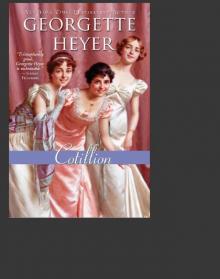 Cotillion
Cotillion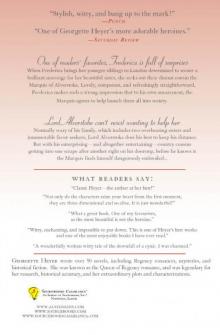 Frederica
Frederica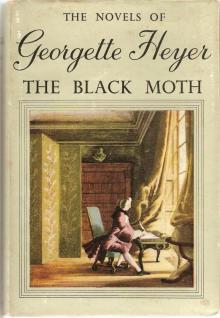 The Black Moth: A Romance of the XVIIIth Century
The Black Moth: A Romance of the XVIIIth Century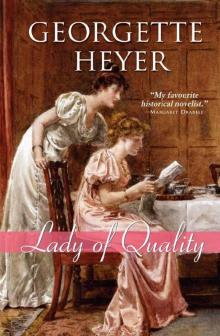 Lady of Quality
Lady of Quality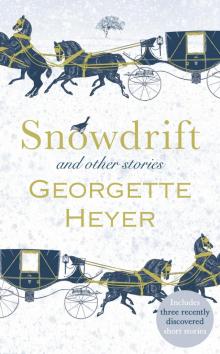 Snowdrift and Other Stories
Snowdrift and Other Stories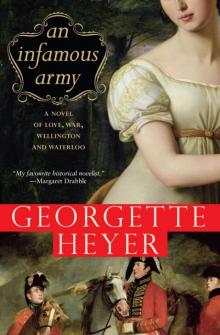 An Infamous Army
An Infamous Army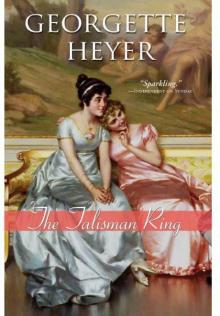 The Talisman Ring
The Talisman Ring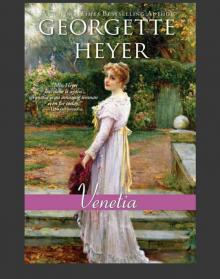 Venetia
Venetia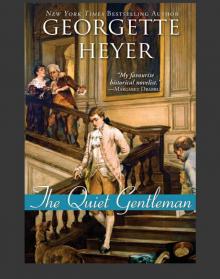 The Quiet Gentleman
The Quiet Gentleman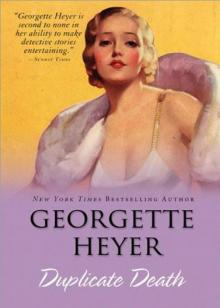 Duplicate Death
Duplicate Death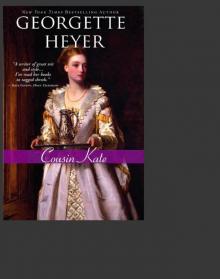 Cousin Kate
Cousin Kate Black Sheep
Black Sheep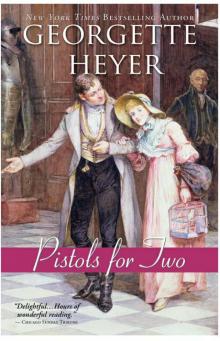 Pistols for Two
Pistols for Two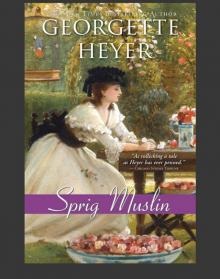 Sprig Muslin
Sprig Muslin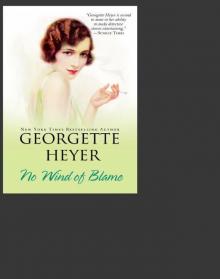 No Wind of Blame
No Wind of Blame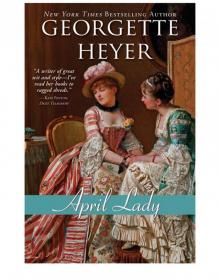 April Lady
April Lady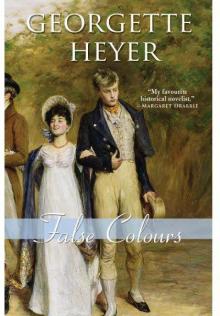 False Colours
False Colours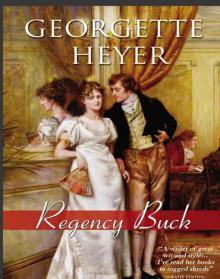 Regency Buck
Regency Buck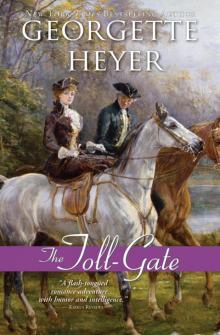 The Toll-Gate
The Toll-Gate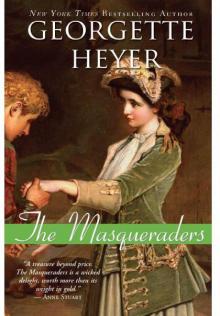 The Masqueraders
The Masqueraders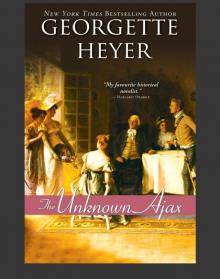 The Unknown Ajax
The Unknown Ajax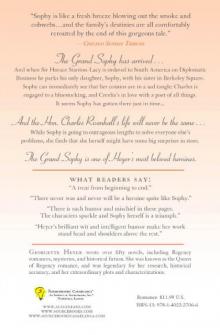 The Grand Sophy
The Grand Sophy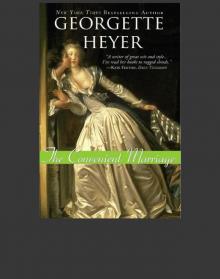 The Convenient Marriage
The Convenient Marriage Faro's Daughter
Faro's Daughter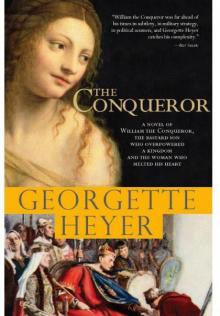 The Conqueror
The Conqueror The Foundling
The Foundling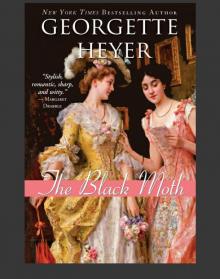 The Black Moth
The Black Moth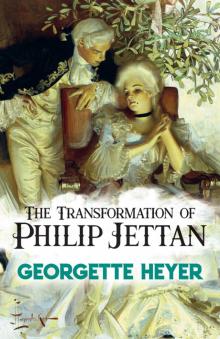 The Transformation of Philip Jettan
The Transformation of Philip Jettan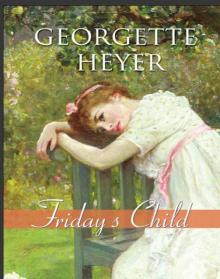 Friday's Child
Friday's Child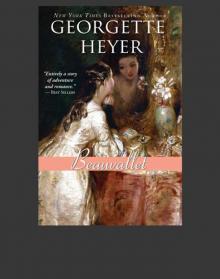 Beauvallet
Beauvallet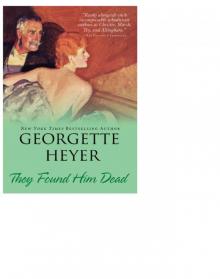 They Found Him Dead
They Found Him Dead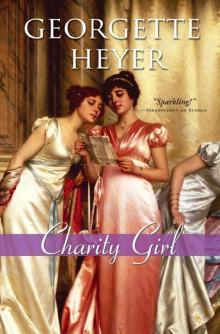 Charity Girl
Charity Girl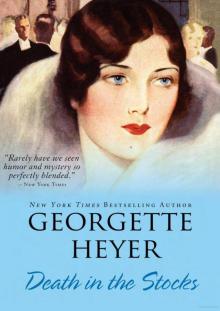 Death in the Stocks: Merely Murder
Death in the Stocks: Merely Murder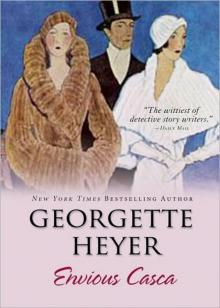 Envious Casca
Envious Casca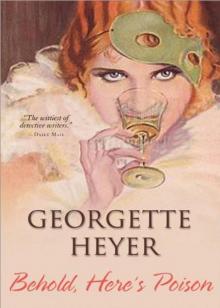 Behold, Here's Poison
Behold, Here's Poison Arabella
Arabella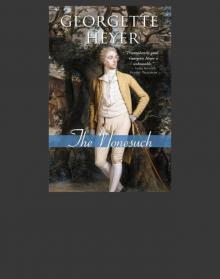 The Nonesuch
The Nonesuch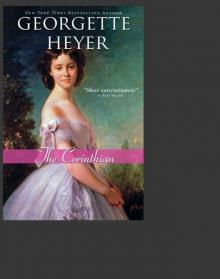 The Corinthian
The Corinthian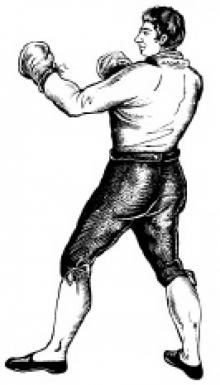 Jennifer Kloester
Jennifer Kloester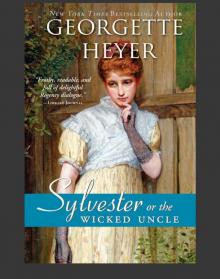 Sylvester
Sylvester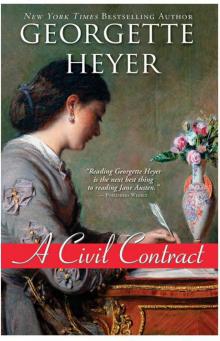 A Civil Contract
A Civil Contract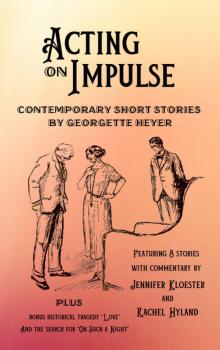 Acting on Impulse
Acting on Impulse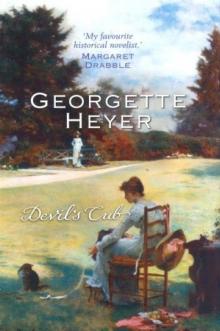 Devil’s Cub at-2
Devil’s Cub at-2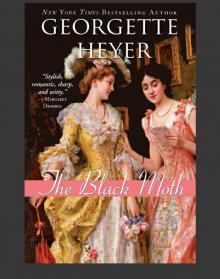 Black Moth
Black Moth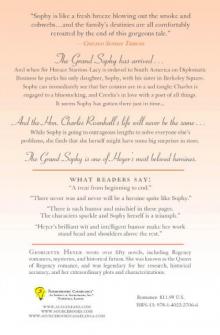 Grand Sophy
Grand Sophy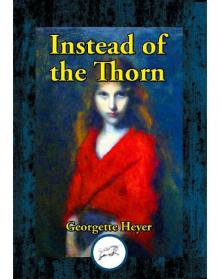 Instead of the Thorn
Instead of the Thorn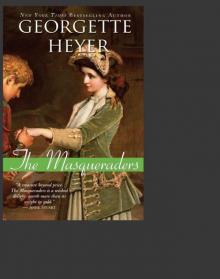 Masqueraders
Masqueraders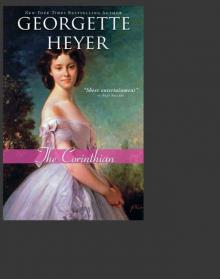 Corinthian
Corinthian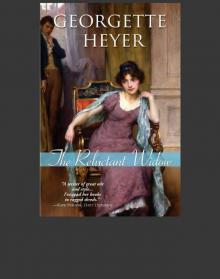 Reluctant Widow
Reluctant Widow